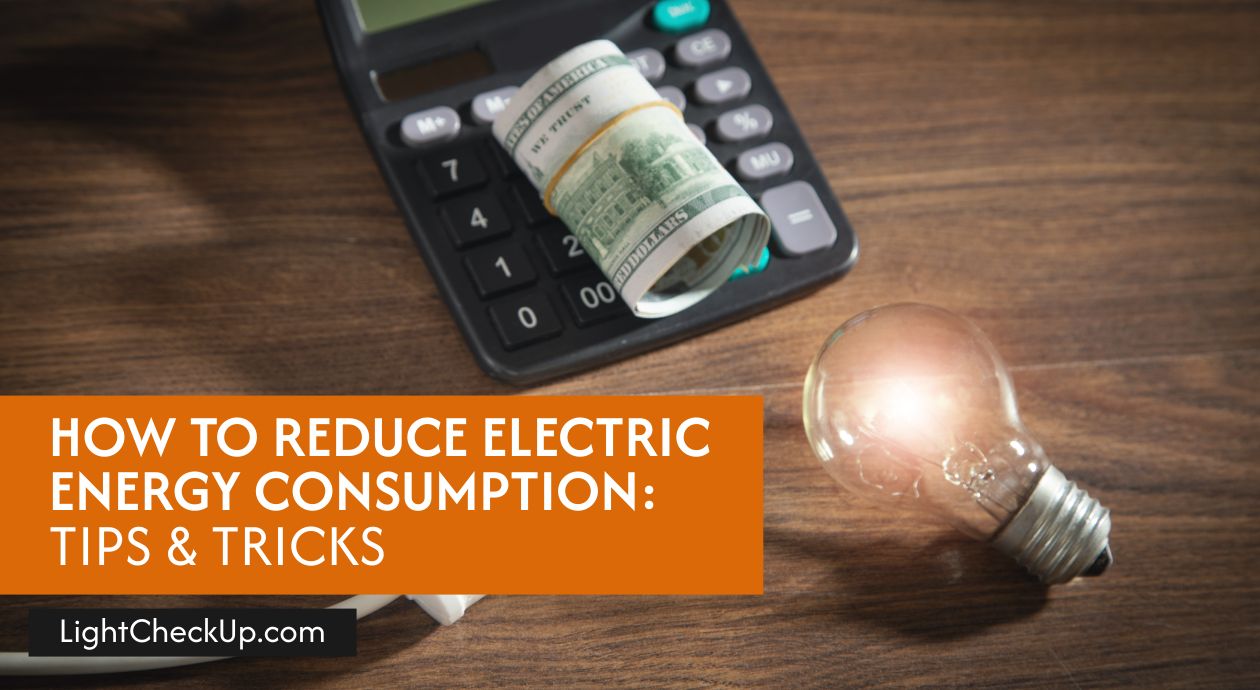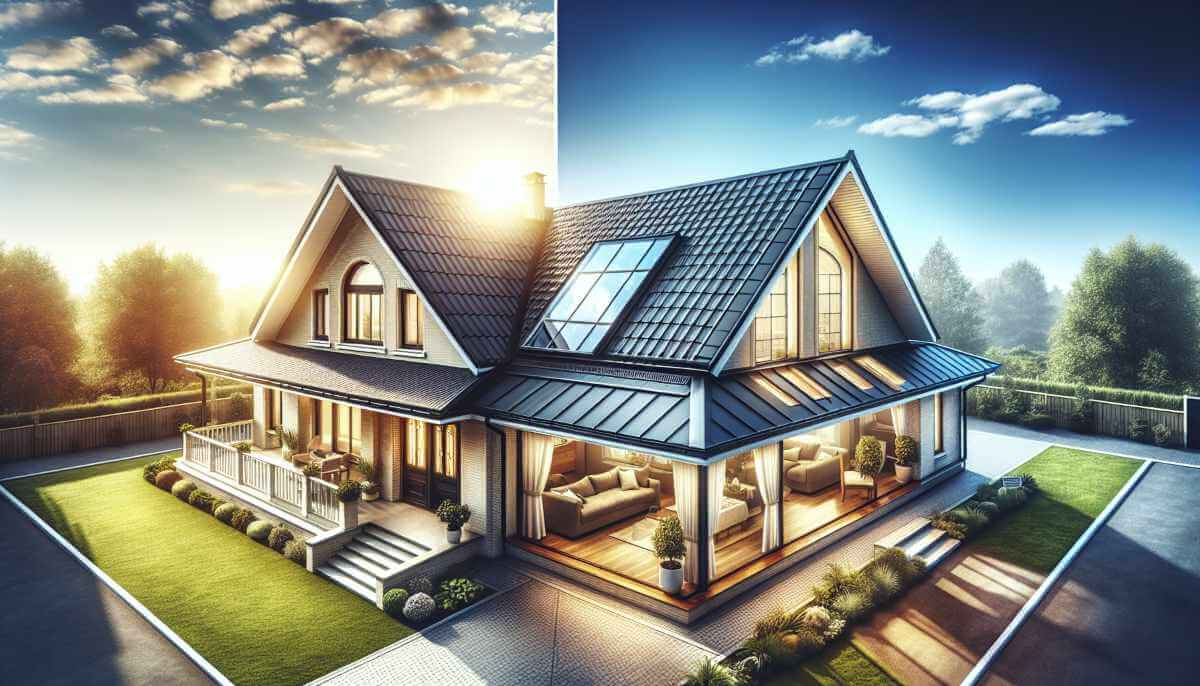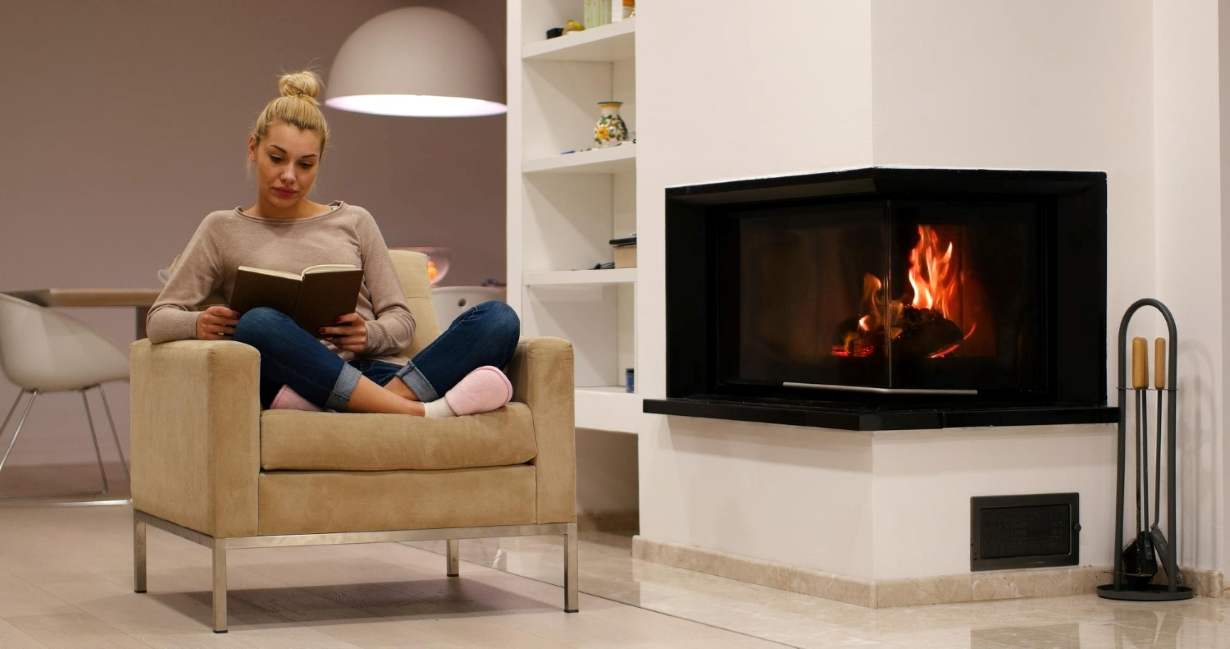Did you realize that reducing your thermostat by one degree could lead to a 3% savings on your heating bill? Given the uptick in energy costs and the pressing nature of environmental conservation, it’s essential to explore techniques to decrease our power usage. The use of simple strategies enables us to save on electric energy consumption bills and the environment.
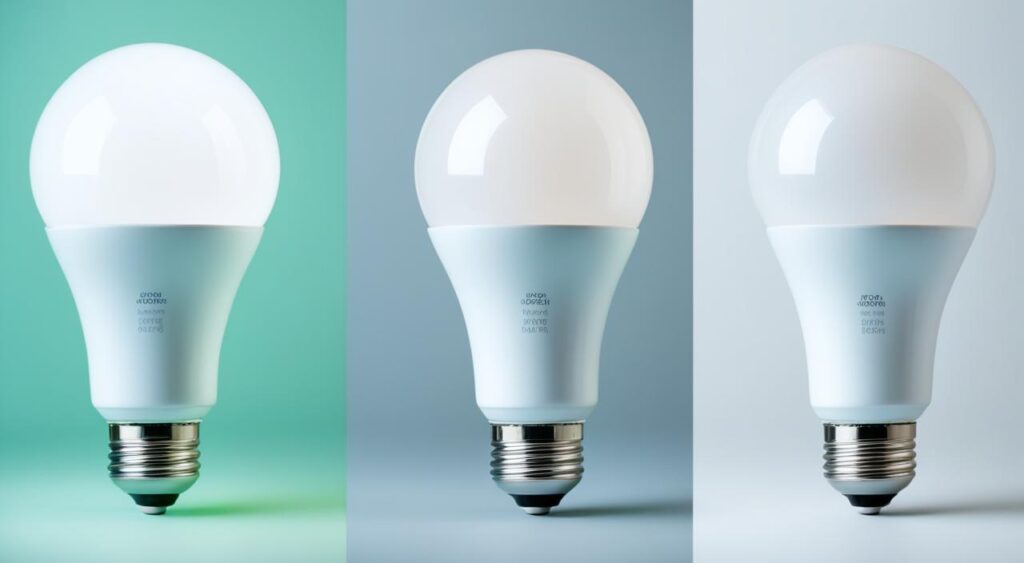
There are tricks to trim your electric bill. This ranges from tweaking thermostats, switching to dimmers lights, to selecting low-energy home gadgets. Our goal? We’re giving you simple hacks to significantly tone down your power usage. The best bit? You won’t have to compromise on coziness or ease!
Key Takeaways
- Chilling out with your thermostat could save 3% per degree in wintertime.
- You won’t believe that merely wrapping those pipes and water tanks can shrink your heating bills by 3% to 5%.
- Microwaves are half as energy-efficient as ovens.
- Energy Star-certified LED bulbs save up to 90% on electricity over incandescent bulbs.
- A smart thermostat can reduce heating and cooling costs by approximately 8%.
- It is important to insulate ductwork in unheated areas in order to improve furnace efficiency.
- Approximately 5%-10% of residential energy usage is used for standby, which costs households $100 per year.
Basics of Electric Energy Consumption
The knowledge of electric consumption is key to saving energy. Let’s talk about the basics.
What is electric energy consumption?
Think of electric energy use like the power your gadgets and machines need at home or your job. We track it in kilowatt-hours or kWh. Fast forward to 2022, our globe needed 24,398 terawatt-hour (TWh) of electricity, a jump from 8,132 TWh in 1981.
Giant nations consisting of China, the U.S, India, and Japan took over half of it. Electricity accounts for one-fifth of all global energy consumption. It represents 20 of all final energy use.
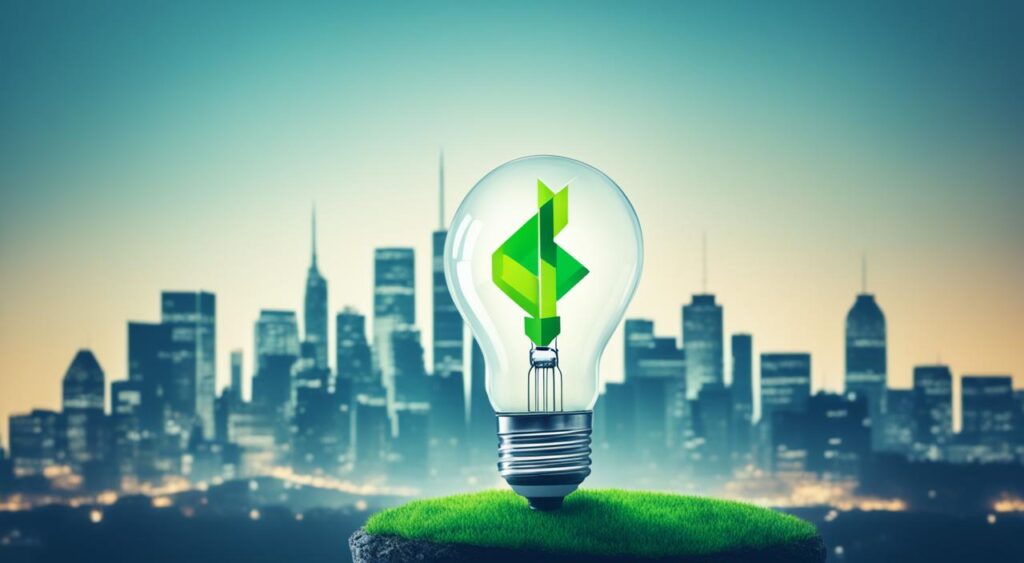
The importance of tracking energy usage
There are many reasons why tracking energy usage is important:
- It helps us find ways to use less energy.
- With energy usage statistics, we can predict and plan for the future.
- Knowing how much energy we use lets us save money.
The power use in the U.S. hit 4.07 trillion kWh in the year 2022. An impressive leap of 14 times from that of 1950. Hence, closely monitoring energy consumption becomes critical.
Tools to monitor electric energy consumption
There are tools to help us measure and manage our electricity use:
- Energy Monitors: These give us real-time info on appliance energy use.
- Smart Meters: They give exact and detailed energy usage statistics that we can check online.
- Kilowatt Calculator: This tool helps us figure out how much electricity we use. It helps us plan better.
We keep track of our energy use with these tools. We can reduce our use.
| Country | Electricity Consumption (TWh) in 2022 |
|---|---|
| China | 7,214 |
| United States | 4,070 |
| India | 1,552 |
| Japan | 995 |
The text talks about the foundation of electric energy, its value, and monitoring methods. SEO keywords are included and graphs show how electricity consumption should be monitored.
Easy Tips to Reduce Electric Energy Consumption
Your wallet and the earth benefit from less electricity. A couple of simple steps can make a significant impact. We’ll explore some easy ways to save energy at home.
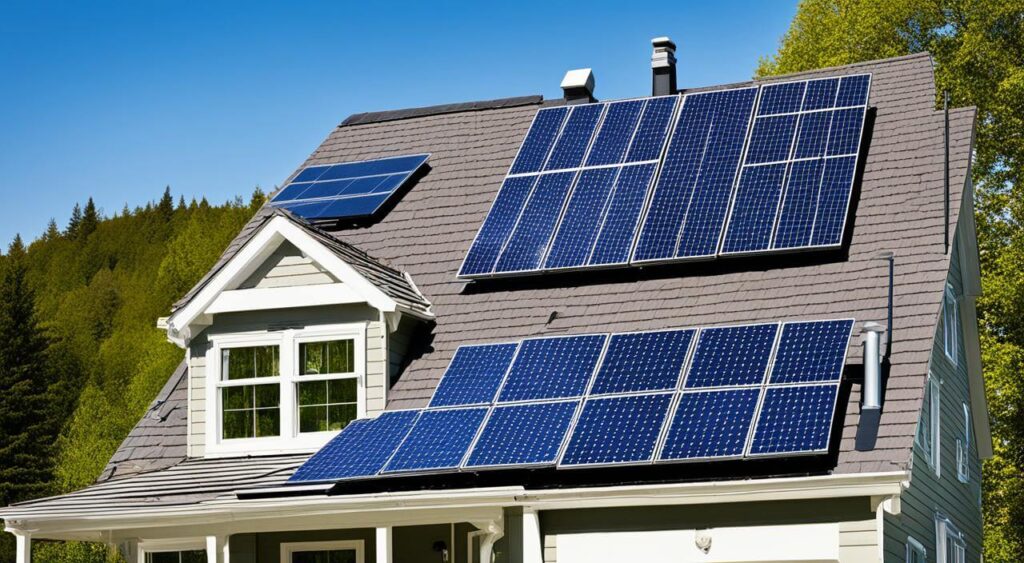
Turn down your thermostat
Turning down the thermostat is a simple way to save energy. It works best in winter. Lowering the temperature by a few degrees cuts heating costs.
For example, dropping the thermostat 7-10 degrees for 8 hours a day saves a lot. This can save up to 10% on heating and cooling bills.
Use smart thermostats
Smart thermostats are smart choices for saving energy. They learn your schedule and adjust the temperature for you. This means you use less energy without losing comfort.
ENERGY STAR says a smart thermostat can save 8% on bills. That’s around $50 a year.
Switch to energy-efficient lighting
It’s wise to switch for LED bulbs for better lighting. LED bulbs benefit you with lower energy use and extended bulb life. Choosing them is a smart way to keep more cash in your pocket. Did you know ENERGY STAR-approved LEDs consume 75% less power and outlast old-school bulbs by 25 times?
LEDs reduce energy waste and expense. Utilizing these quick tricks, you can boost your home’s energy efficiency. This not only reduces electricity costs, but also contributes to our environment.
Energy-efficient appliances
Buying energy-efficient appliances helps us use less energy and save money on bills. The Energy Star label helps us save energy.
Choose Energy Star-certified devices
Devices with the Energy Star stamp don’t just work well. They help save the Earth too. Like how? Take brand-new fridges. They use minimal power and save us cash each month. Less expensive than old fridges that guzzle energy.
You’ll find water heaters that use less energy cost more initially. However, the savings stack up over time, up to $3,500. It pays off to pick the right appliances.
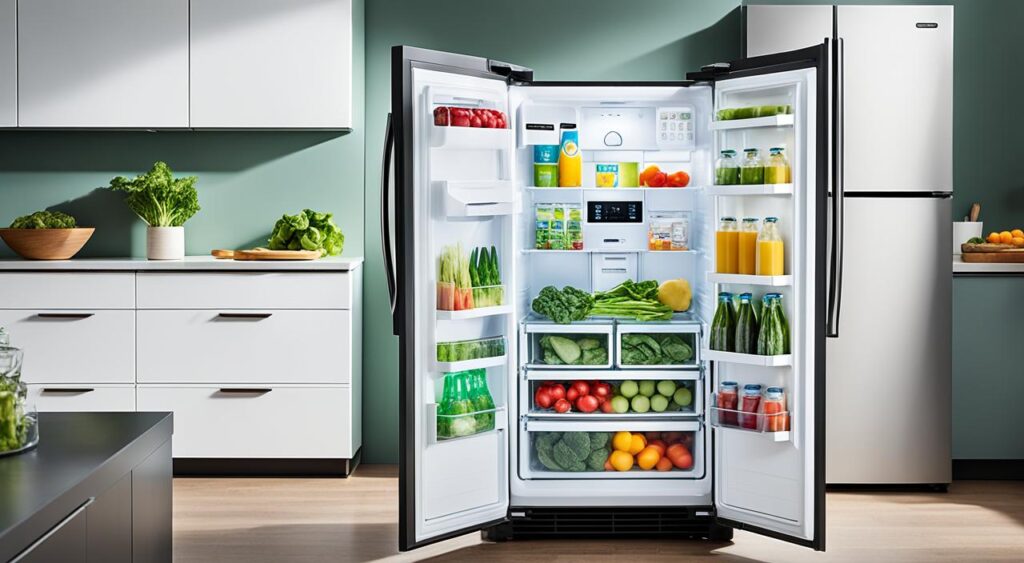
Regular maintenance and servicing
Keeping our appliances in good shape helps us use less energy. Things like HVAC units and fridges need regular checks to work right. A well-kept appliance uses less power, saving us money and helping the planet.
Benefits of smart power strips
Smart power strips help us use even less energy at home. The devices turn off when not in use, saving energy. We can save even more money if we know how much energy our devices use.
A computer, for example, uses less power. We can save energy by using smart power strips. The environment benefits and we save money.
| Appliance | Average Monthly kWh Usage | Monthly Cost | Smart Energy Feature |
|---|---|---|---|
| Energy Star Refrigerator (14-25 cu. ft.) | 28 to 63 kWh | $4.23 to $9.51 | Optimized Power Management |
| Older Refrigerator (15 cu. ft.) | 72 kWh | $10.87 | N/A |
| Electric Water Heater | 380 to 500 kWh | $57.38 to $75.50 | Energy-saving Scheduling |
| Desktop Computer | 0.06 to 0.25 kWh per hour | $0.01 to $0.04 per hour | Auto Shutdown |
| LED TV (60+ inch) | 0.15 kWh per hour | $0.02 per hour | Standby Power Reduction |
Insulation and Weatherization
Our homes need to be well-insulated and weatherized to save energy. These steps make our homes more comfortable and save money over time. They also help the environment.
The Importance of Proper Insulation
It is essential to insulate a home to conserve energy. It prevents heat exchange between our homes’ interiors and exteriors, easing our heating and cooling devices’ burden. Strategically placed insulation can significantly reduce expenses.
This could reduce homeowners’ heating and cooling costs by up to 15%. That’s equivalent to a 11% reduction in energy costs.
Sealing Air Leaks
Air leaks should also be sealed. A leak around a window or door lets energy escape. It helps to seal these spots.
It is possible to cut energy use by 12% to 18% by sealing leaks. It saves energy a lot.
Energy Audit Recommendations
An energy audit advises on improving insulation and sealing. It identifies energy loss and suggests solutions. These changes can be made more effective by monitoring energy use.
Following these suggestions can save you money. Depending on where you live and the weather, you could save 5% to 16% on your bills.
Read Also: The Future Of Renewable Energy: American Power And Light’s Vision For A Green Tomorrow
Behavioral Adjustments
Our habits can drastically reduce the amount of electricity we use. Simple steps like turning off lights or controlling devices help enormously. Such adjustments are essential for the future. Enlightening individuals about their impact on energy consumption can result in significant changes.
It is easier to conserve energy by acknowledging spikes in energy usage and changing habits. These changes are more cost-effective than large-scale projects, so they benefit households and administrations. Alerts and reminders help households conserve energy. Efficiencies include straightforward information, social comparisons, goal setting, and incentives.
These strategies contribute significantly to energy conservation. Implementing energy-efficient technology and educating people can change habits dramatically. Energy conservation can be greatly enhanced by incorporating human behavior.
A simple action like voluntary participation can have a significant impact. Our energy management habits can be improved if we are accountable and use behavioral knowledge.
Conclusion
We’ve learned a lot about cutting down electric energy consumption.
Through this effort, we will be able to manage electric energy better.
We can save a lot of energy with smart thermostats and energy-saving lights. Simple changes in our habits can also help.
Our homes can be made more energy-efficient if we use Energy Star appliances, keep them in good shape, and insulate and weatherproof them.
It is smart and good for the planet to save energy. An energy check-up can reveal where we lose energy.
Laws help us conserve energy and use it wisely. Laws have helped us save energy since the 1970s.
Save energy that helps the environment and the economy. Let’s work together to make the world a better place.
Read Also: US Energy Department Announces Clean Energy Corps 2024
FAQ | Electric Energy Consumption
What is electric energy consumption?
Electric energy consumption is how much power our devices and appliances use. It’s measured in kilowatt-hours (kWh). Knowing this helps us use energy better and save money.
Why is tracking energy usage important?
Tracking energy usage helps us see where we can use less. It lets us make changes to save money and help the planet.
What tools can help monitor electric consumption?
Tools like energy monitors, smart meters, and kilowatt calculators help track electric use. They give us real-time data to manage our power better.
How can we reduce electricity costs by turning down the thermostat?
Lowering the thermostat a few degrees in winter cuts heating costs. It’s an easy way to save money on our bills.
What are the benefits of using smart thermostats?
Smart thermostats adjust the temperature for us. They learn our habits to save energy. This means heating and cooling only when needed.
How does switching to energy-efficient lighting help?
Using LED bulbs, which are Energy Star-certified, saves a lot of energy. LEDs use less power and last longer than old bulbs, cutting our costs and use.
Why should we choose Energy Star-certified appliances?
Energy Star-certified appliances are very efficient. They use less power and save us money. They work well and last longer too.
How does regular maintenance affect energy efficiency?
Keeping appliances like HVAC and fridges in good shape saves energy. They work better and use less power, making them last longer.
What are the benefits of smart power strips?
Smart power strips stop devices from using power when not in use. This cuts down on standby energy use, saving us more electricity.
Why is proper insulation essential?
Good insulation keeps our homes at a steady temperature. This means our heating and cooling systems work less, saving energy and making us more comfortable.
How can sealing air leaks improve energy efficiency?
Sealing leaks around doors and windows keeps the temperature steady inside. This makes our heating and cooling systems work less, saving energy and money.
What are the recommendations from an energy audit?
An energy audit gives advice on making our homes more energy-efficient. It shows where energy is lost and how to fix it, helping us use energy better.
What are some behavioral adjustments that can reduce energy consumption?
Simple actions like turning off lights and managing appliances can cut our energy use. Being mindful of our energy use is key to saving in the long run.
